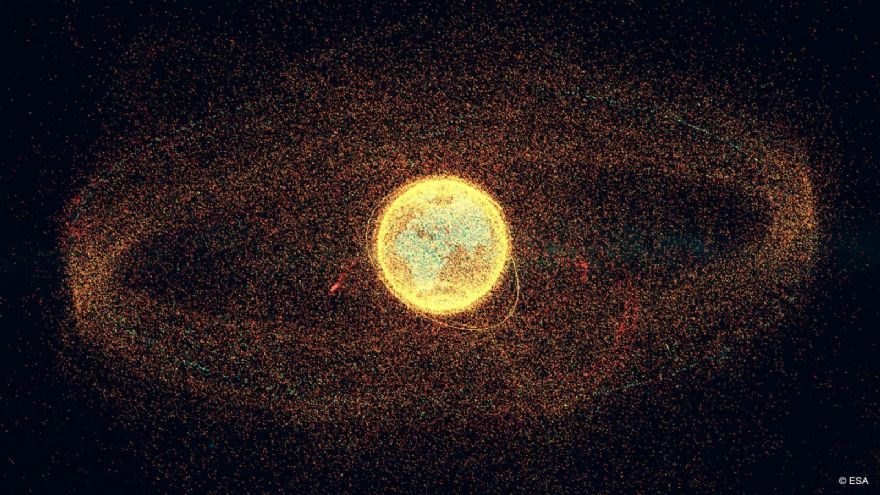 Photo: ESA
Photo: ESAThe
UK Space Agency (UKSA) has launched a £75.6 million procurement process to tackle the growing threat of space debris. The tender for ‘the nation’s first mission to remove defunct satellites from orbit’, is seen as ‘marking a pivotal step in the UK’s efforts to protect vital space infrastructure and ensure the long-term safety of the orbital environment’.
At the heart of the proposed Active Debris Removal (ADR) mission is a specially designed spacecraft, equipped with British robotic and autonomous navigation technology, that will capture and safely de-orbit two non-functioning UK-licensed satellites from low-Earth orbit by guiding the defunct satellites into Earth’s atmosphere, where they will burn up and eliminate potential threats to the satellite networks. It is estimated that there are currently some 140 million pieces of space debris smaller than 1cm, and over 54,000 tracked objects larger than 10cm orbiting Earth; and even tiny fragments can cause catastrophic damage to satellites.
Sir Chris Bryant, Minister for Space, says the tender process secures home-grown expertise and strengthens the UK’s leadership in the rapidly advancing field of ‘in-orbit servicing, assembly and manufacturing’ (ISAM). “It also represents a shift in the UKSA’s approach, from traditional grants to competitive contracts, contracts designed to stimulate private investment and create high-skilled jobs throughout the country.”
Securing the future of spacePaul Bate, the UKSA’s CEO, said: “Actively clearing space debris is a bold step toward a safer, more sustainable orbital environment. This mission showcases the UK’s technical excellence and our commitment to protecting the space systems that modern life depends on. It is about securing the future of space for everyone, delivering tangible benefits here on Earth, and positioning the UK at the forefront of the in-orbit services market.
“The UKSA is now seeking a single supplier to deliver the five-year research and development contract, with the mission targeted for launch by the end of 2028. This follows £11 million already invested since 2021 in feasibility studies and design work, underscoring the Government’s long-term commitment to becoming a clean-space superpower.
“The UK space sector is already a national success story, employing 52,000 people, generating £18.9 billion in annual income, and comprising a vibrant ecosystem of over 1,700 organisations. With labour productivity 2.5-times the national average, the sector plays a vital role in delivering high-skilled jobs, driving R&D, and underpinning critical services — from navigation and telecommunications to climate monitoring and national security — that support 18% of UK GDP.”